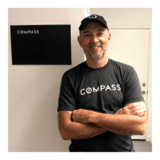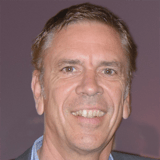Summary
From the pandemic to mass layoffs to burnout, designers have been enduring years of crisis and toxic stress. For some people, living through these kinds of events can be traumatic. Resmaa Menakem defines trauma as "anything that is too much, too soon, too fast, or for too long without being attended to by something reparative or healing." DesignOps professionals and people managers are perfectly positioned to learn about trauma and re-shape their organizations to be spaces for healing, instead of harm. In this talk, participants will understand the prevalence of toxic stress in the workplace, be able to start identifying signs of trauma within themselves, and walk away with three practical ways to create an environment of healing.
Key Insights
-
•
Mala frames workplace stress as a biological survival response, not just a mental state.
-
•
Stress triggers release of cortisol and adrenaline preparing the body for survival.
-
•
Fear is the emotional component of stress, meaning daily stress equals frequent fear.
-
•
Toxic stress occurs when stress is too intense, too fast, and prolonged without healing.
-
•
Common toxic workplace stressors include abusive relationships, layoffs, glorified workaholism, and ambiguous priorities.
-
•
Up to 79% of global employees experience significant stress and up to 19% may develop PTSD from workplace trauma.
-
•
Toxic stress impairs cognitive functioning, cutting operating IQ by half and preventing great work.
-
•
Healing toxic stress requires changing workplace conditions, not only individual coping strategies.
-
•
Polyvagal theory identifies context, choice, and connection as key biological needs for healing in workplaces.
-
•
Simple interventions like explaining the 'why' behind decisions and auditing meetings reduce stress and increase psychological safety.
Notable Quotes
"Resilience doesn’t come from enduring or tolerating suffering. It comes from healing it and changing the conditions that cause it."
"Our biological bodies are hardwired to prioritize survival above everything else."
"Stress is our nervous system going into a state of mobilization, preparing us to fight or flee a perceived threat."
"The workplaces conditions and expectations to perform faster forever are biologically impossible to sustain."
"Toxic stress is experiencing too much too fast for too long without healing."
"If you’re feeling medium stress, maybe you’ve just gotten used to a high level of stress over time."
"Toxic stress makes people dumb, reducing their cognitive ability by half."
"Workplace trauma is real and much more common than we acknowledge, causing symptoms like sleep disturbances and emotional flashbacks."
"Changing how we operate and relate to each other is the only thing in our control, regardless of organizational position."
"Admiration is the antidote for contempt and vital to creating healing work environments."
Or choose a question:
















More Videos

"The future of urban living depends on our commitment to environmental justice."
Lena ShenkarenkoCollaborative Wireframing for Creating Team Alignment and Shipping Better Products
October 21, 2020

"I wanted to create a model that let us rapidly increase our value within the business."
Catherine BlizzardUsing Integrated Insight to Drive Growth
March 10, 2022

"Teams testing components in real-world contexts early can catch issues before products are even built."
Gabriela BarnevaOperationalizing Inclusive Design in Design Ops
September 11, 2025

"Unpaid design exercises are unfair because they don’t take into account people's real-life constraints."
Russ UngerOnboarding: The Ecosystem, not the Afterthought
November 7, 2017

"We’ve seen self-service tool usage grow from hundreds to millions of veterans served monthly after launching a unified VA platform."
Shawna Hein Kevin HoffmanCreate a Cohesive Civic Design Practice Across Agency, Vendors, and Contracts
November 17, 2022

"The more people know about HITS, the more they want to use it, though some teams have cultural resistance."
Matt DuignanHITS, Microsoft's internal human insight system: From research library to living body of knowledge
July 16, 2019

"The BICEPS model helps understand what our co-workers need to feel supported and purposeful."
Christopher Taylor Edwards Valerie RoskeDesign as a Team Practice, A Practical Guide to Cross-functional Collaboration
September 30, 2021

"A lot of design frameworks funnel thinking narrowly, which feels like baked-in limitations of human-centered design."
Sheryl CababaIntegrating Systems Thinking Into Your Practice as a Designer
October 1, 2025

"It’s normal for people to say you failed, sometimes even in meetings you’re not in, but you shouldn’t let that stop you."
Eniola OluwoleLessons From the DesignOps Journey of the World's Largest Travel Site
October 24, 2019
















